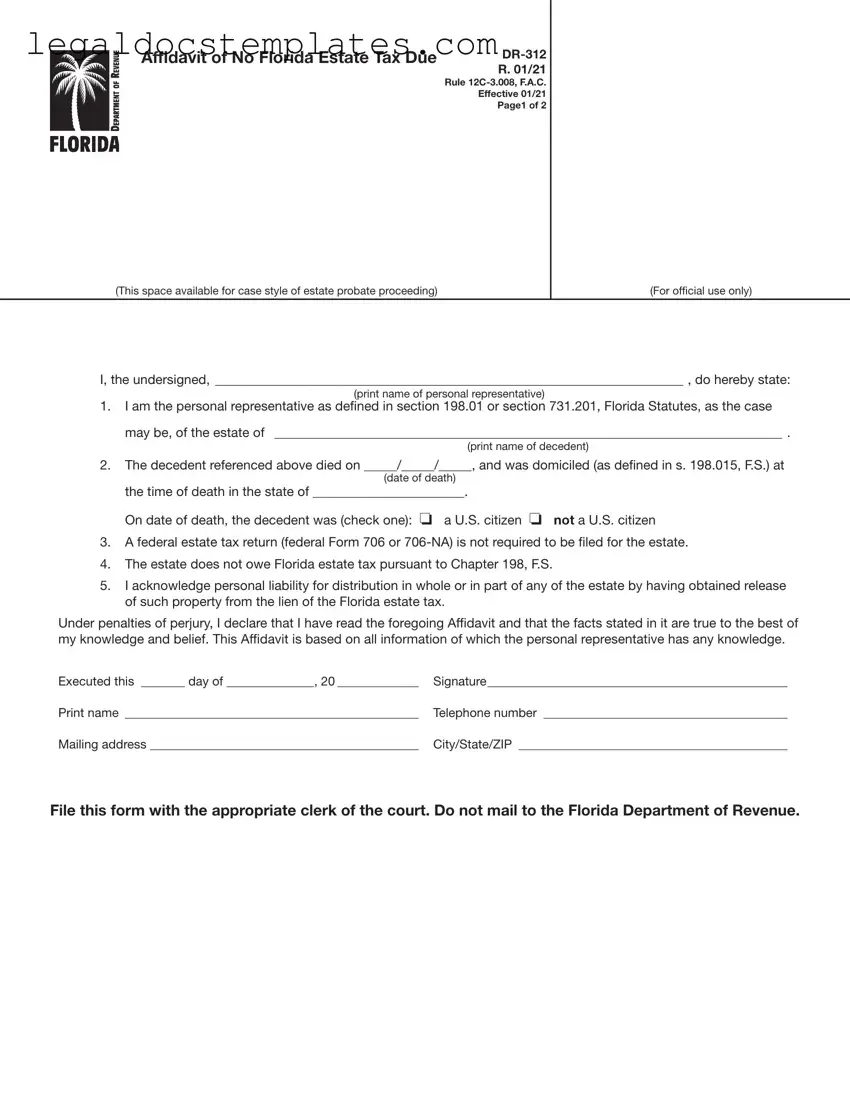Filling out the FL DR 312 form, also known as the Affidavit of No Florida Estate Tax Due, is a critical step in the estate management process in Florida. However, errors can occur during this process, leading to potential legal complications or delays. Here are six common mistakes people make when completing this form.
One common mistake is the incomplete or incorrect identification of the personal representative. The form requires the personal representative to print their name clearly, identifying themselves as the individual responsible for the estate. It's crucial that this information matches the legal documents appointing them to this role. Any discrepancy can cause confusion or lead to the form being rejected by the court.
Another frequent error is the failure to accurately identify the decedent. The form requires the full legal name of the deceased, as well as their date of death and domicile state at the time of death. Mixing up these details or providing incomplete information can lead to serious issues in processing the affidavit, possibly affecting the estate's legal standing.
The form also asks whether a federal estate tax return is required, with responses based on the estate's value and specific thresholds. A mistake in understanding or acknowledging this requirement can lead to inaccuracies in the affidavit. If the estate's value necessitates a federal return, but the form erroneously states otherwise, the personal representative could face legal ramifications.
Often overlooked is the proper use of the space reserved for the clerk of the court. It is outlined that the 3-inch by 3-inch space in the upper right corner is exclusively for the clerk's use. Marking or writing in this area, even accidentally, can invalidate the form or at least necessitate its re-submission, leading to delays in the estate's processing.
A critical error made by many is the lack of acknowledgment regarding personal liability. By signing the form, the personal representative acknowledges their liability for any distribution of the estate that may contravene Florida's estate tax laws. Misunderstanding or overlooking this acknowledgment can lead to personal financial risk and legal issues if the estate is improperly distributed without fulfilling tax obligations.
Lastly, a common mistake is not properly filing the form with the appropriate clerk of the court. The DR-312 form is not to be mailed to the Florida Department of Revenue but rather recorded directly with the clerk of the circuit court in the county or counties where the decedent owned property. Failing to correctly file the form can lead to the estate remaining under a tax lien, potentially complicating property transfers and estate closure.
Avoiding these common mistakes requires attention to detail and a clear understanding of the form's instructions. By accurately completing and properly filing the FL DR 312 form, personal representatives can ensure a smoother process in affirming that no Florida estate tax is due, thus expediting the estate settlement process.



